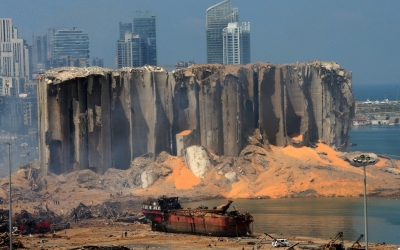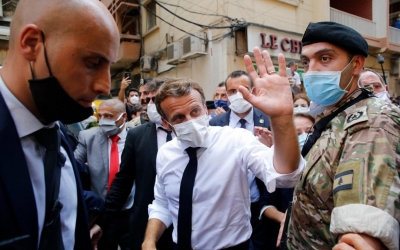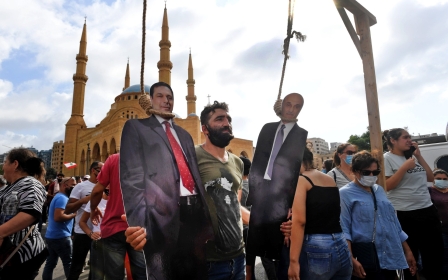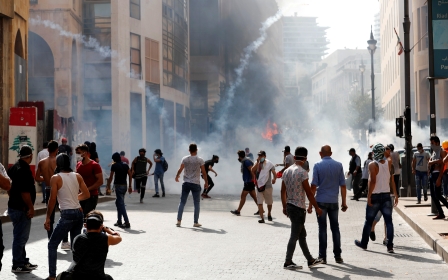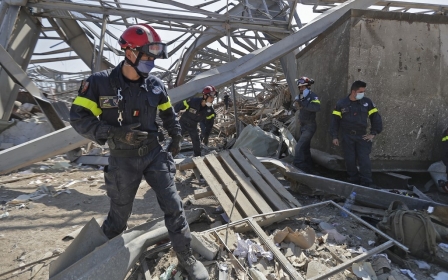Beirut explosion: Lebanon Prime Minister Hassan Diab resigns in wake of deadly blast
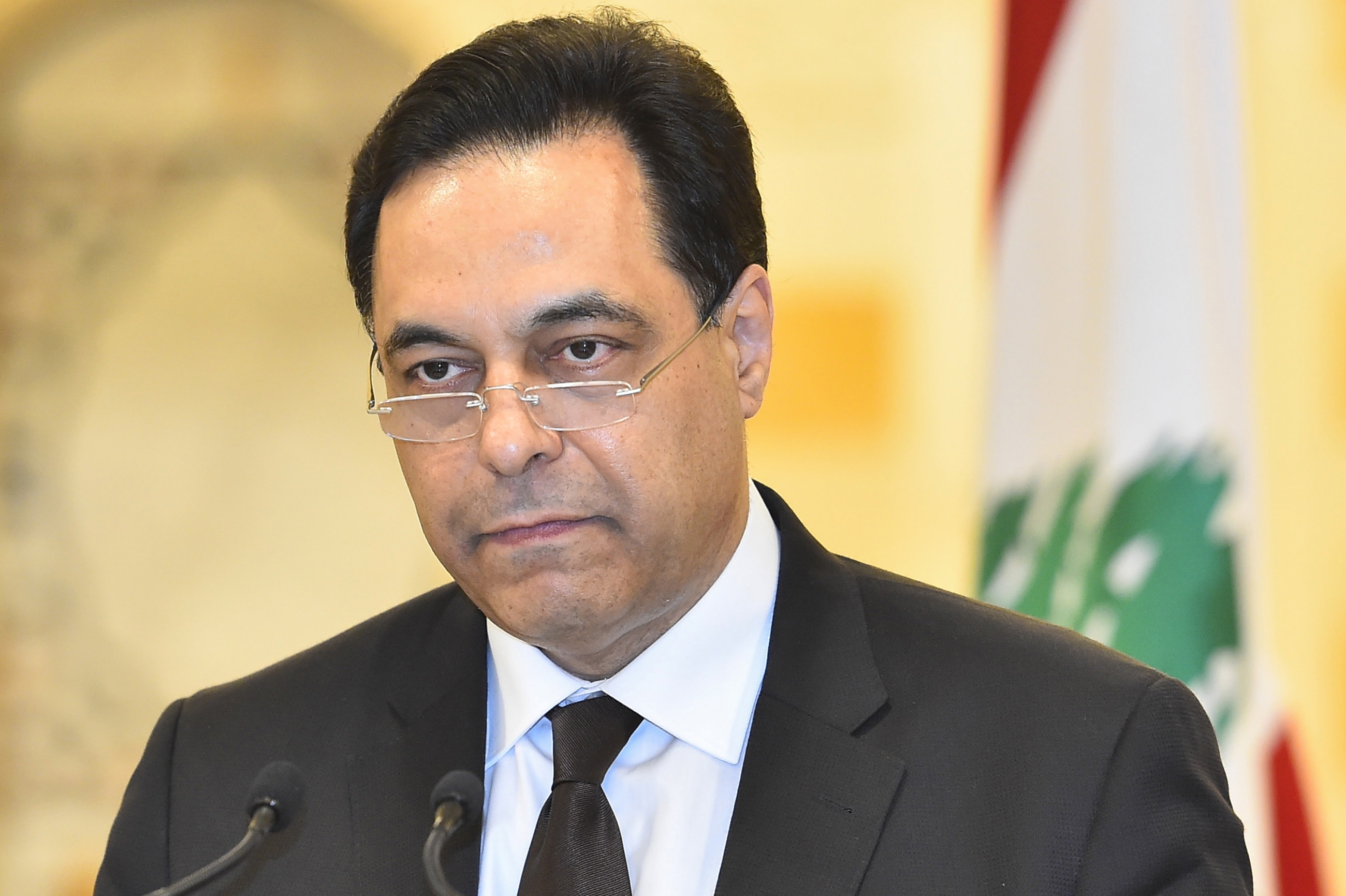
Lebanon's Prime Minister Hassan Diab resigned on Monday amid widespread anger at the country's ruling elite over last week's devastating explosion in Beirut.
At least 200 people were killed and thousands wounded on Tuesday after more than 2,750 tonnes of ammonium nitrate caught fire and later exploded at Beirut port.
The material had been stored on the Beirut waterfront since 2013 with few safeguards despite numerous warnings of the danger.
In a televised address to the nation, Diab said the "crime" was a result of endemic corruption and lashed out at the country's elite, accusing it of plotting against his technocratic government.
"Corruption is rooted in every part of the state… but I found out that corruption is greater than the state," he said.
"They knew we were a threat to them and the success of this government means real change in this class that ruled until the country choked from the stench of its corruption."
Diab, who assumed office in December, had previously rejected calls to step down, but his resignation came after two days of widespread and violent protests.
His announcement also came hours after Finance Minister Ghazi Wazni and Justice Minister Marie-Claude Najm resigned from the government. Both had been in office since mid-January.
The cabinet - ostensibly a technocratic formation but backed by Hezbollah and its allies - was formed after three months of popular protests against Lebanon's political elite.
President Michel Aoun accepted the resignation and asked Diab's government to stay on in a caretaker capacity.
Unlikely to meet expectations
Diab's resignation was met with cars honking in the street but was unlikely to meet the long-term expectations of the Lebanese population.
Mayssoun Sukarieh, a researcher on Lebanon and lecturer at King's College London, said she saw the announcement as an opportunity for change, but expected the system to "reproduce" itself "unless the president himself resigns".
Sukarieh said Aoun's decision to stay on risked dragging out negotiations over a new cabinet amid the urgent calls for reform.
"This is a pattern," she told Middle East Eye. "[Political] paralysis to appoint a president then prime minister."
As protests continued for another night, Charbel Chaaya, a student at the University of Saint-Joseph, said the current system was unlikely to address long-standing grievances and "solve any problems.
"The political system has failed, and the only solution comes from outside of it," Chaaya told MEE.
The explosion at Beirut port comes at a time when Lebanon is dealing with a severe financial crisis, as well as the coronavirus pandemic.
On Sunday, world leaders and international organisations pledged nearly $300m in emergency humanitarian aid to Lebanon, but warned that no money for rebuilding the capital would be made available until authorities committed themselves to the political and economic reforms demanded by the people.
Losses from the catastrophic blast are estimated to be between $10bn to $15bn, with nearly 300,000 people left homeless.
Middle East Eye delivers independent and unrivalled coverage and analysis of the Middle East, North Africa and beyond. To learn more about republishing this content and the associated fees, please fill out this form. More about MEE can be found here.


